Untold Stories: Setsuko Hewey, A Pillar of Strength and Kindness
By Gabi Goyette
I often feel compelled to tell my grandma’s story because I’ve known it for years and I am still in awe of what she has endured. She’s very modest and doesn’t share details of her past unless directly asked, but I think her story is inspiring. I wonder how many other rich stories live inside people who just haven’t told them yet. Or had someone to write it down for them. My grandma’s name is Setsuko Hewey, but after she moved to the U.S. she started going by “Sue” to make pronunciation easier. My family calls her “Nana Sue.”
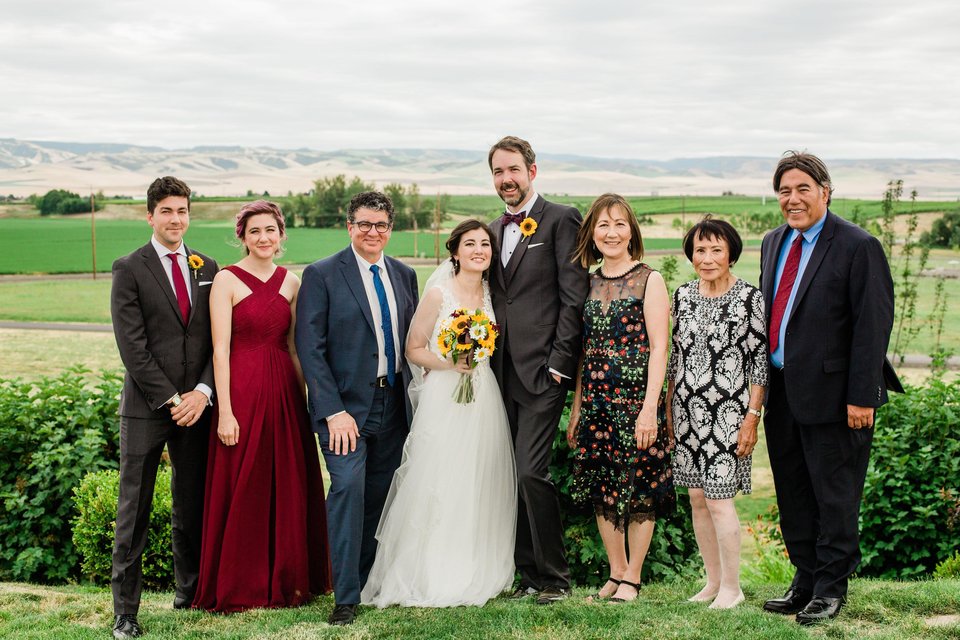
Nana Sue celebrated her 91st birthday this year. She lives with her small white poodle mix Abby in San Diego, CA. She enjoys her daily visits to the park where she chats with her fellow dog owner friends. The last time I visited, I was surprised she wanted a case of beer from the grocery store. Then I was less surprised when she explained it was for some gentlemen at the baseball field who kindly saved a bunch of bottles for her bottle-collecting hobby. Her dog before Abby, Daisy, used to pick up lost baseballs at the park, and Nana Sue would stock up on them in her garage and to hand them off in big sacks to the baseball leagues at the beginning of a new season. I love hearing about these random relationships she forms with strangers. She is quiet, but has a wicked sense of humor and her acts of kindness have created friends of all ages over the years.
Nana Sue takes pride in her garden filled with lemons, oranges, and grapefruit. She insists we stuff our luggage with as much fruit as we can on our trip home to share with friends. She has no internet, so when we visit and use our mobile hotspots to put on shows like Anne of Green Gables, she stays up extra late to get in as many episodes as possible before we leave. She lets me sleep in when I stay with her, but every morning I know she’ll exclaim, “if you sleep that late your eyes are going to be melted!” She’ll call every so often to request that I find a recipe “on the internet” to mail to her. She has a big crush on Bradley Cooper, specifically the “A Star is Born” Bradley. She insists on doing everything herself, so we’re often shooing her away from ladders and heavy lifting when we visit. Over the summers when I was little, she would stay with us all summer, drive us to all our activities, and feed us (always delicious food). As if watching us wasn’t enough work, she’d always take it upon herself to do a time-consuming summer project like refinishing the deck or reorganizing the garage. She makes amazing mac and cheese, and sometimes she makes Japanese items like miso soup, fried rice, okonomiyaki, or sushi. Watching her putter around her home today in San Diego, affectionately chatting with her dog Abby (also referred to as “Abbisita-kun”), you would never know the struggle her body and mind have endured. It’s only if you look closer that you see the scars of her past.
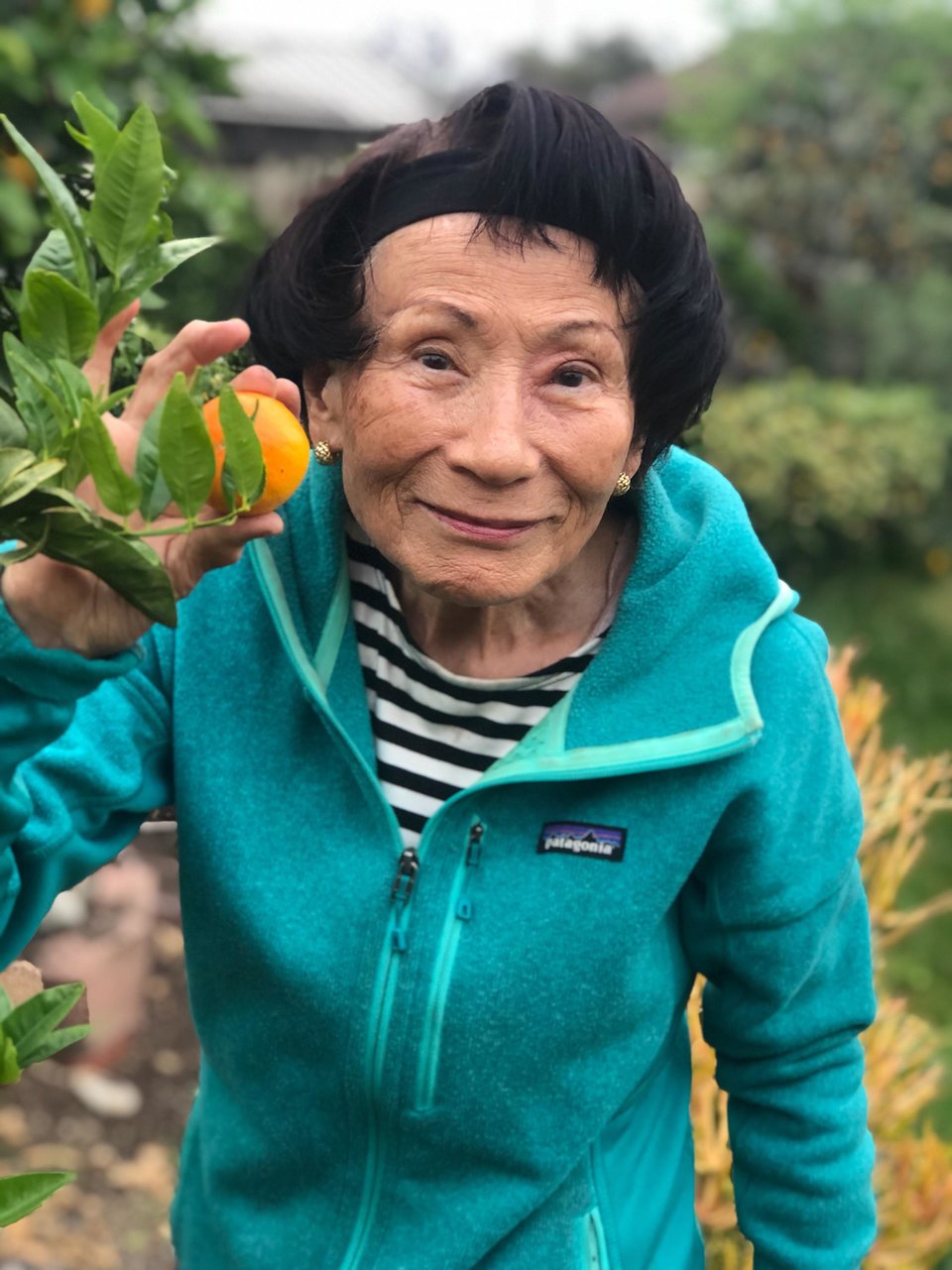
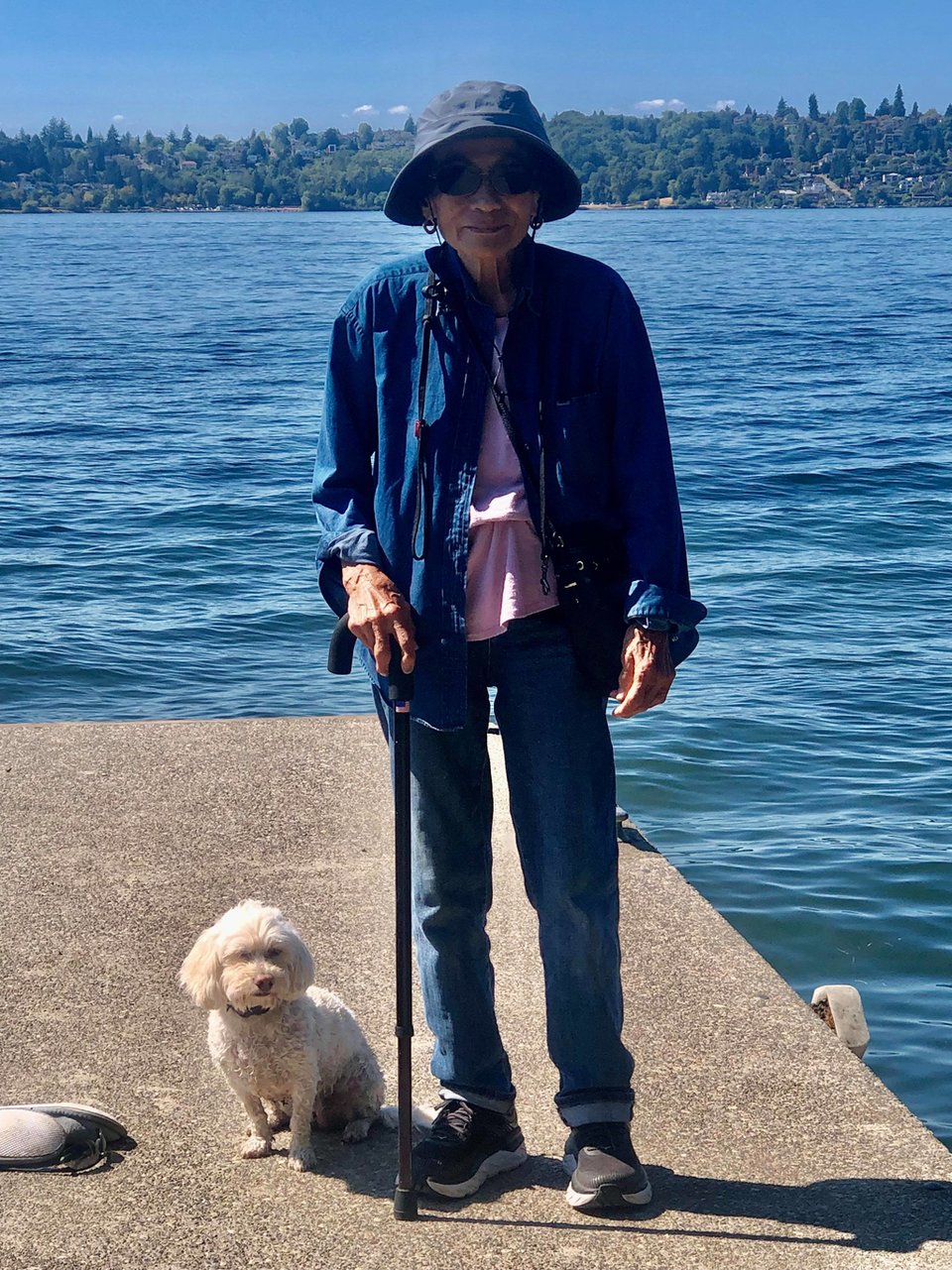
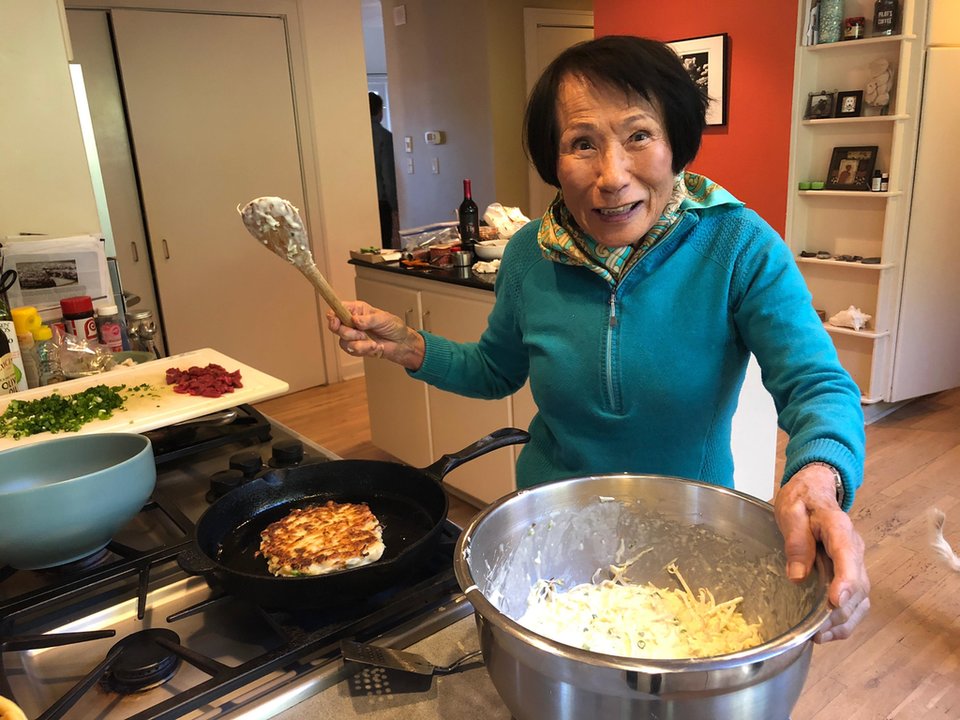
Nana Sue was born Setsuko Kumami (meaning “I saw the bear”) on March 13, 1930 in Japan. Her father died when she was young, so she was raised by her mother Yoshie along with her two brothers and one sister. Yoshie struggled to provide for her family. Nana Sue’s home life was unhealthy, especially compared to her brothers who were seen as more useful. She was neglected and emotionally abused. Then, as World War II took hold of her life as a preteen and teen, a life of chaos and violence was all she really knew. When Nana Sue was twelve, Yoshie moved to the countryside with Nana Sue’s brothers to keep them safe from the bombs. Nana Sue and her sister, Kyoko, were left behind in Osaka with their uncle because they were older and had to finish school. It was also a higher priority to keep the boys safe.
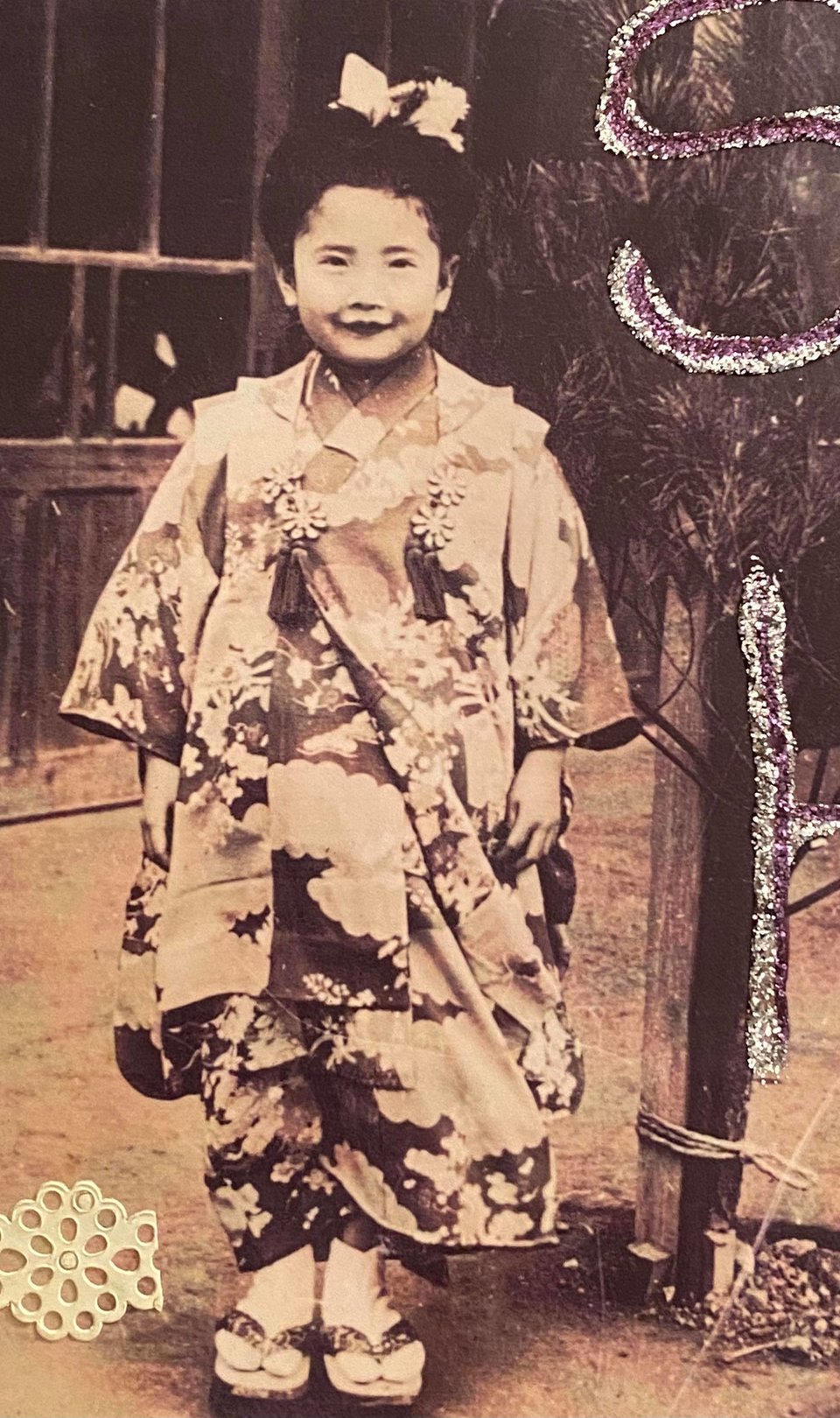
Nana Sue remembers always feeling hungry because food was rationed. There was a shortage of everything, so they only received a small amount of food per month. She recalls sirens blaring nightly to signal American planes approaching to bomb Osaka. Once the signal went off, people ran for their lives to escape to the bomb shelters. Sometimes the sirens went off so much in one night that she’d sleep in the shelter out of exhaustion. She watched people die around her. She saw dead bodies scattered in the streets. One particular night is burned into Nana Sue’s memory. When she was 14, people thought it was safe to come out of the shelters. A bomb was dropped while she was in the street, and a piece of shrapnel ripped through her chest, clear through to her back. The shrapnel missed her heart by a few inches. Despite the severity of the injury, taking time to recover in the hospital was not an option because there was such a shortage of beds. She still remembers the unspeakable pain she suffered when the doctor pulled the shrapnel out of her chest using no anesthesia.
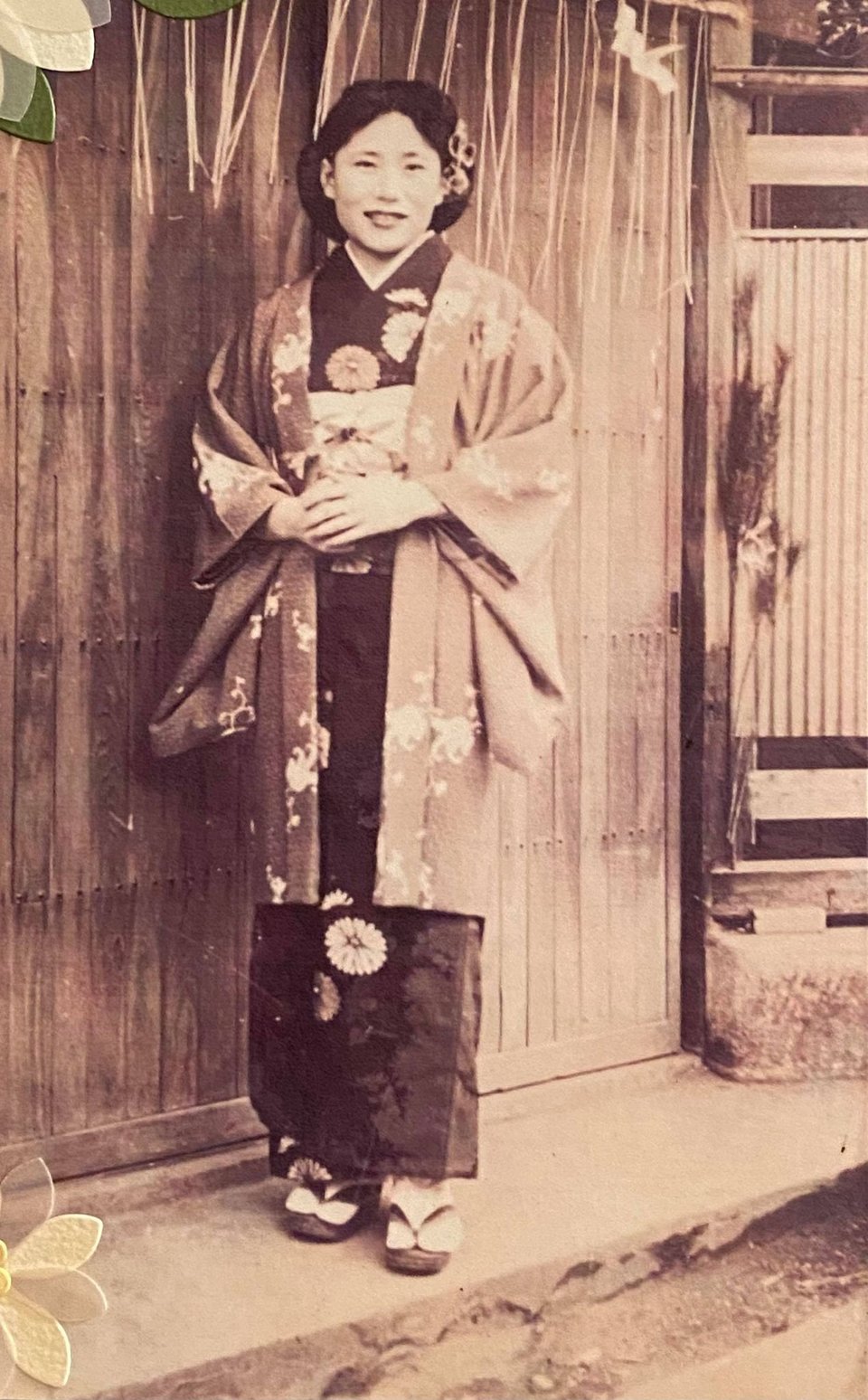
When the war finally ended, everything in Osaka was destroyed. Her family’s home was burned to the ground and her family, along with other families in Osaka, lived in a tent. It was now time to start the long process of recovery and rebuilding. Yoshie returned to Osaka within the year and started a fruit and vegetable stand. At the time, Yoshie was considered fairly wealthy from selling the radio factory her late husband owned, so she bought a house with the proceeds. Their house was a three-story building. The first story was reserved for Yoshie’s antique business. The second story was where they stored their merchandise. The third story was the sleeping quarters, where everyone slept on the floor in one room. Nana Sue has grim memories of her mother as a strict, tyrannical woman. Yoshie was consumed with building a successful business during a time when women were given few career options, and she eventually proved herself to be a shrewd and wealthy businesswoman. She fell short when it came to providing nurturing and emotional support for her children. Nana Sue recalls never feeling loved.
At 21 years old, Nana Sue moved out of the house to live with her aunt. She got a job at a local department store, Takashimaya. A few years later on a rainy day, an American soldier walked into Takashimaya on a whim to buy an umbrella. His name was Paul. Nana Sue waited on him and helped him pick out an umbrella. Like the beginning of a classic romantic story, Paul returned the following day to ask her out on a date. After about a year of dating, they decided to get married. Paul grew up as a foster child and Nana Sue’s family had no interest in participating in their wedding, so they wed at an American Consulate office. Yoshie refused to meet Paul and eventually cut off all communication with Nana Sue when she moved to the U.S. to start a new life in San Diego. The rest of Nana Sue’s family was instructed not to speak to her and they obeyed.
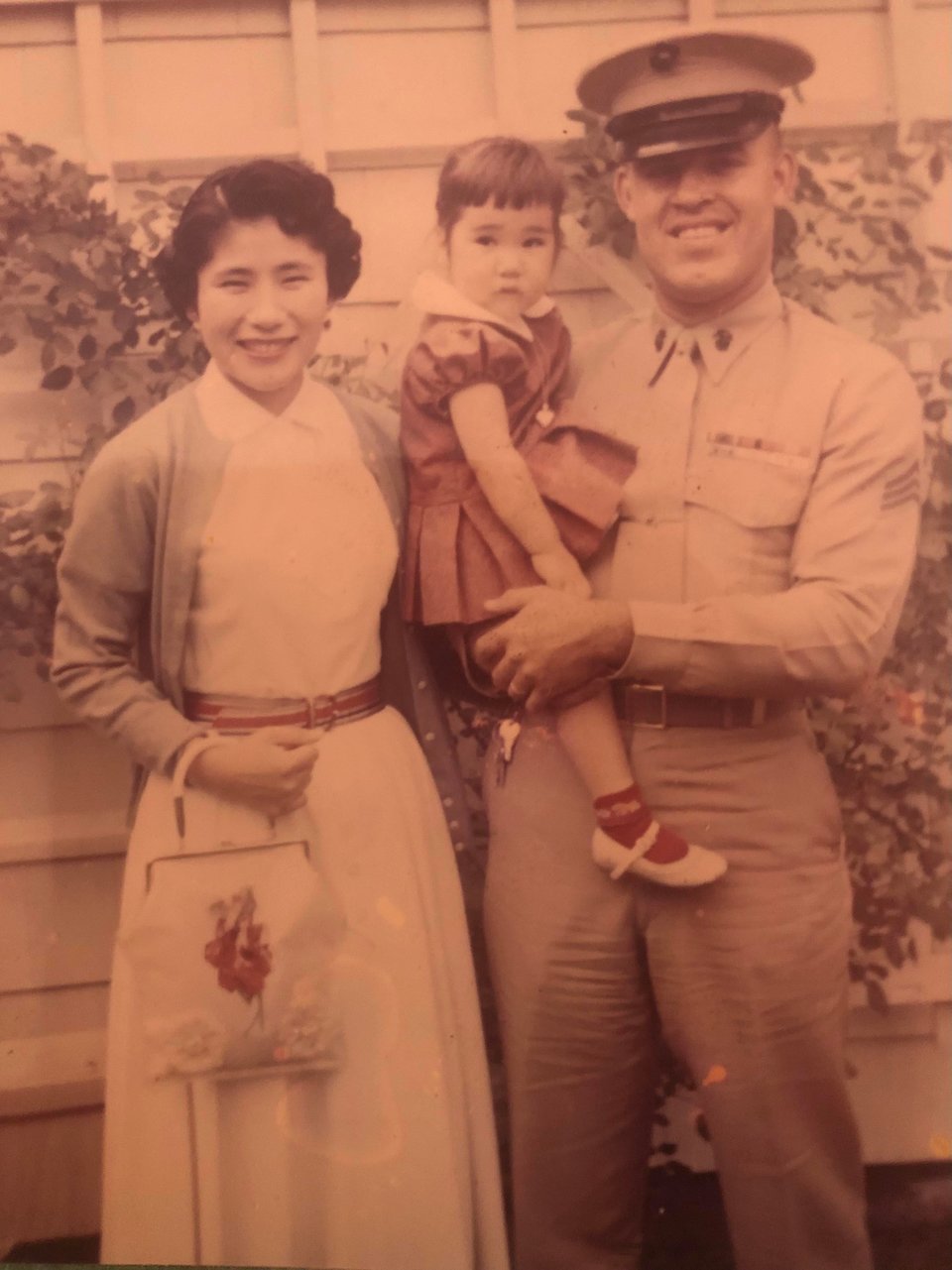
Nana Sue arrived in San Diego at the age of 24 with a beginner proficiency in English from classes she’d taken in Osaka. She began teaching herself English through books, television, and a few classes. While this extreme life change was intimidating, she looked forward to living a life where she had personal freedom. Plus, she felt empowered defying her mother, who had created so much suffering in her life. The price she paid for this was 35 years of silence from her entire family. Without her family, there was no other line of support. Her friends from school had either died in the war or moved to other countries to escape the bombing. It was a giant leap for someone who had never traveled outside her country to start a brand new life in California with a husband who could not even speak her language.
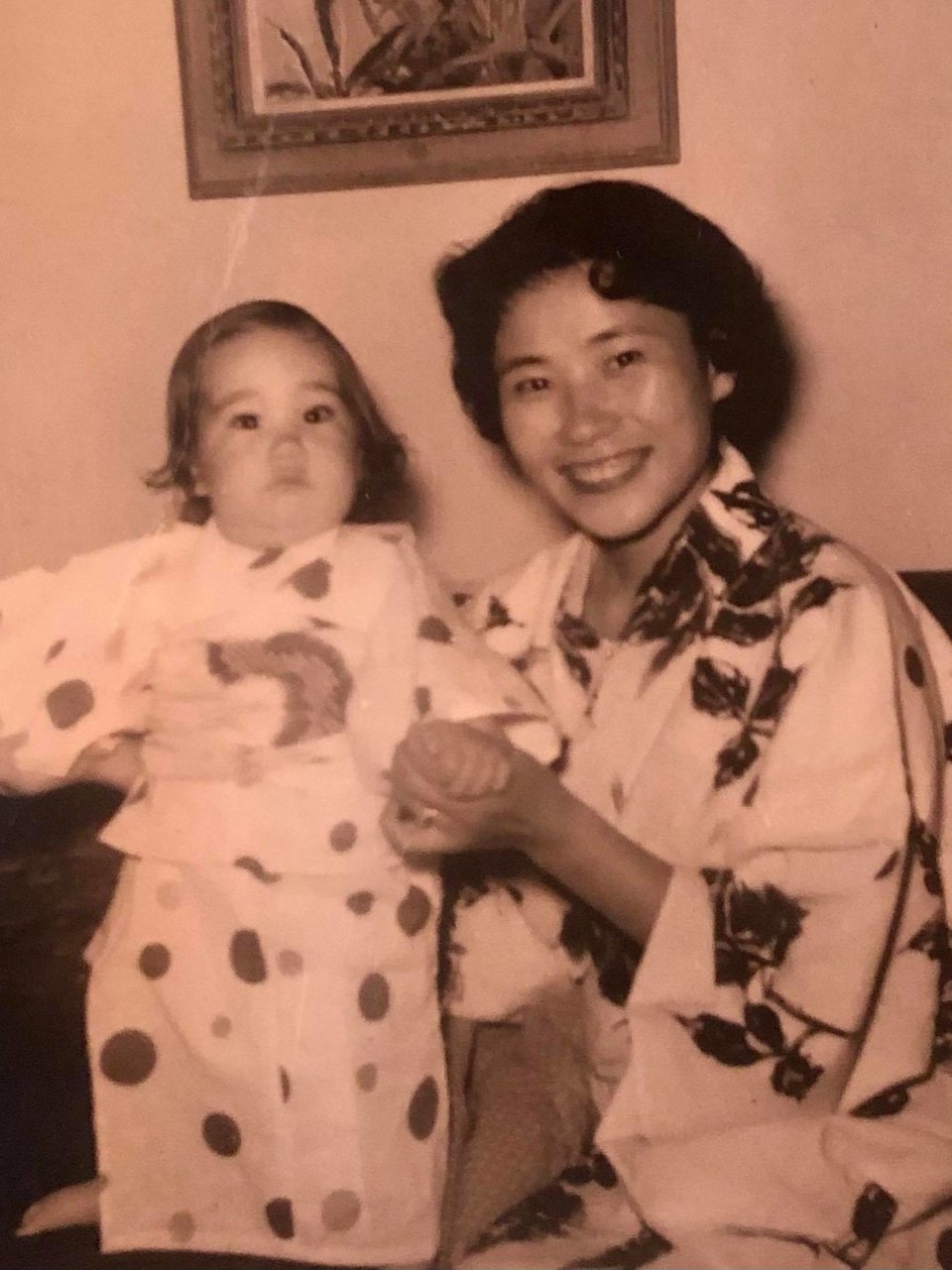
When Nana Sue first arrived, she was five months pregnant with my mom, Margaret (Margo). She had a son not too long after who she named Don. Raising her own family brought her newfound joy. My grandpa Paul had his own history of childhood trauma as a foster child that made home life for their family difficult. Neither Paul nor Nana Sue had role models growing up to show them how to love and care for others, and Paul took his pain out on his family. Paul died young of liver cancer in 1981. Paul’s passing provided independence and solace from his abusive behavior, but his early death still hit hard at first. Nana Sue estimated it was about five years before she felt like she had made peace with his death. Throughout this time, she found a job at Johnson & Johnson, where she worked for 25 years. J&J helped distract her and provide support that she needed. They provided her with free therapists who suggested that physically working out would make her feel better. Every other day she started exercising for two to three hours at the gym. My mom observed my grandma become warmer, more open to humor, and more self-confident after finding a job, living on her own, and discovering new passions like lifting at the gym, gardening, and helping raise her grandchildren.
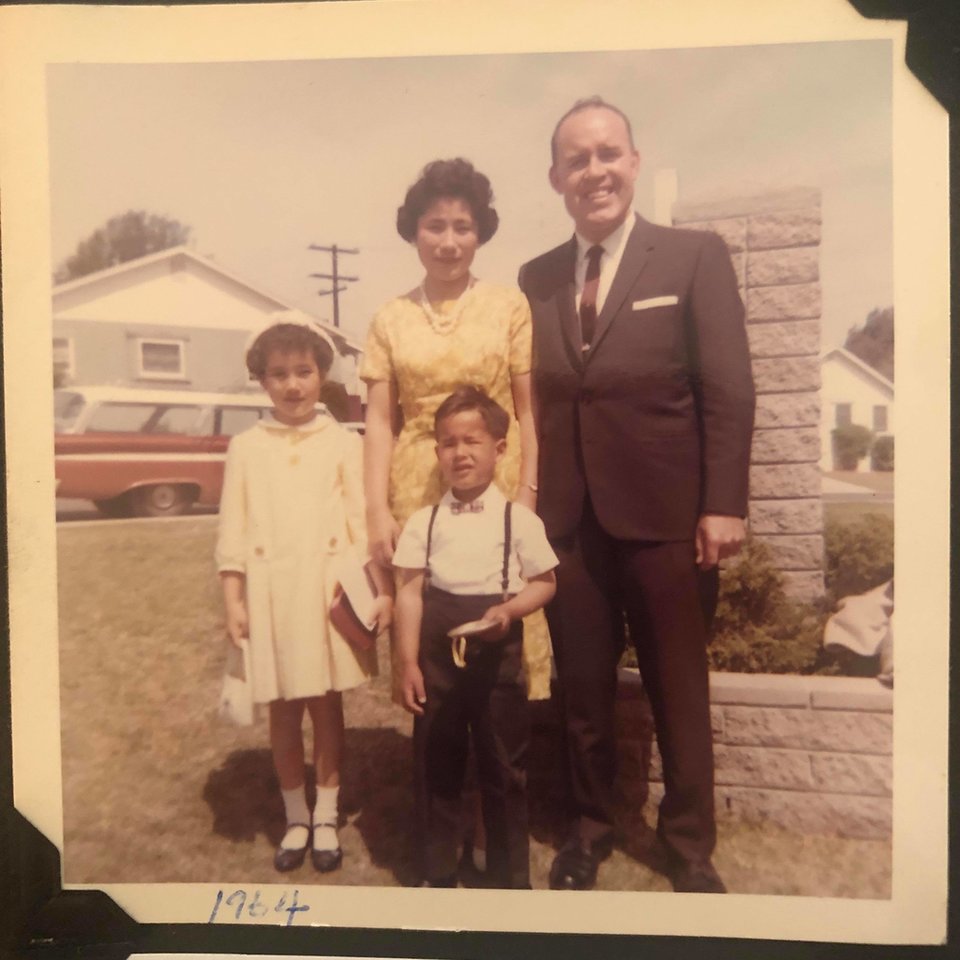
My mom played a role in putting an end to the 35 years of silence from the Kumami family. She found the address of Nana Sue’s uncle and wrote him a letter in an attempt to start up contact with the family. Pride had kept Nana Sue from reaching out to them after she was cut off, but finally the lines of communication were open again. She and her mom did talk again, but there wasn’t much of a relationship to reconcile. A few years later at the age of 93 her mom passed away. Nana Sue and her sister met up once in a while to travel to Europe, but eventually had a fight where ties were cut for good.
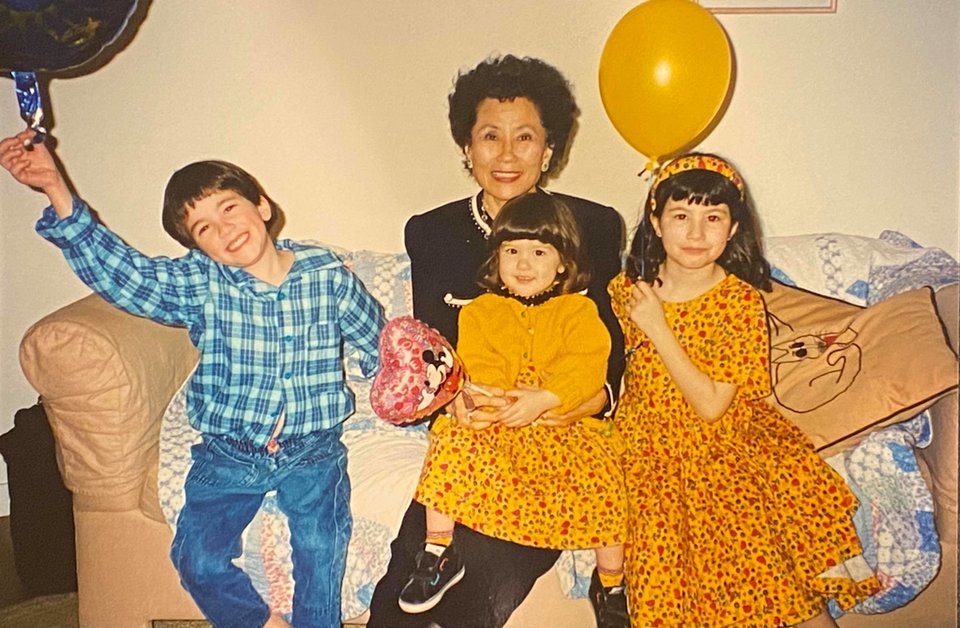
Nana Sue continued her lifting routines into her 80s, but eventually stopped due to health issues with her spine. She may not be going to the gym, but she still stays active. Whenever I call, she always seems to be going to the dog park or coming home from the dog park. She’s always got a gardening project or a house project she’s working on. I just had a wedding a month ago and at 91 she stayed until my husband and I drove off at midnight. There is no one else quite like her that can make me laugh, cheer me up, whip up restaurant quality food, or say a simple phrase of advice that sticks with me. I love that she often mixes up a cliché phrase and the new spin makes it meaningful again. She recently told me, “change your thinking cap.” I think these four words speak to her ability to survive and adapt to even the most unimaginable. She doesn’t realize how wise she is. She lives mindfully. Being forced to be her own support system and source of care from a young age, she has the ability to “change her thinking cap” in any scenario. That’s a real life superpower. I’m proud of what and who she’s overcome and of the person she’s chosen to be despite the horrors of her past.
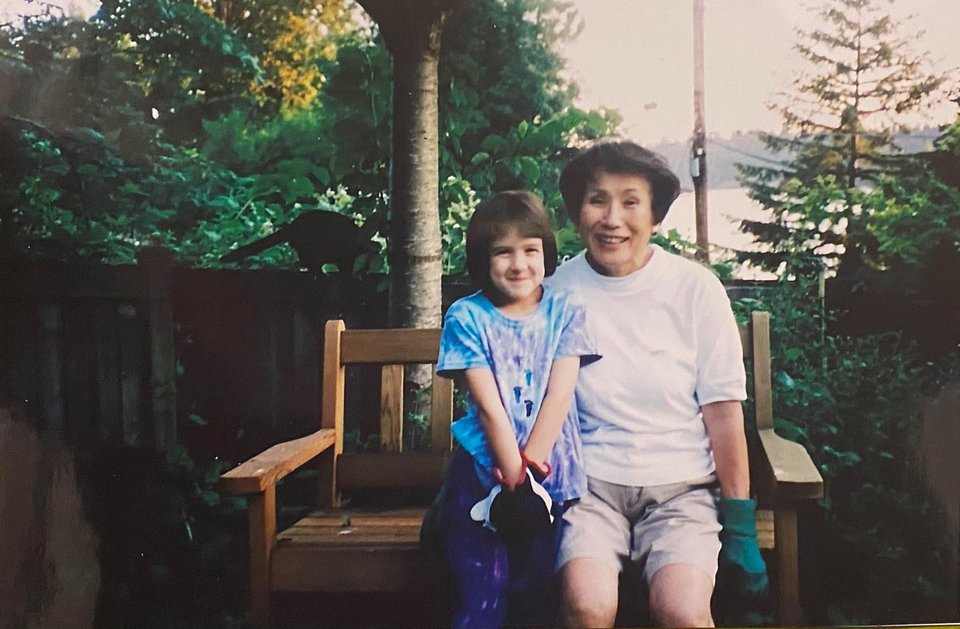
Images provided by Gabi Goyette